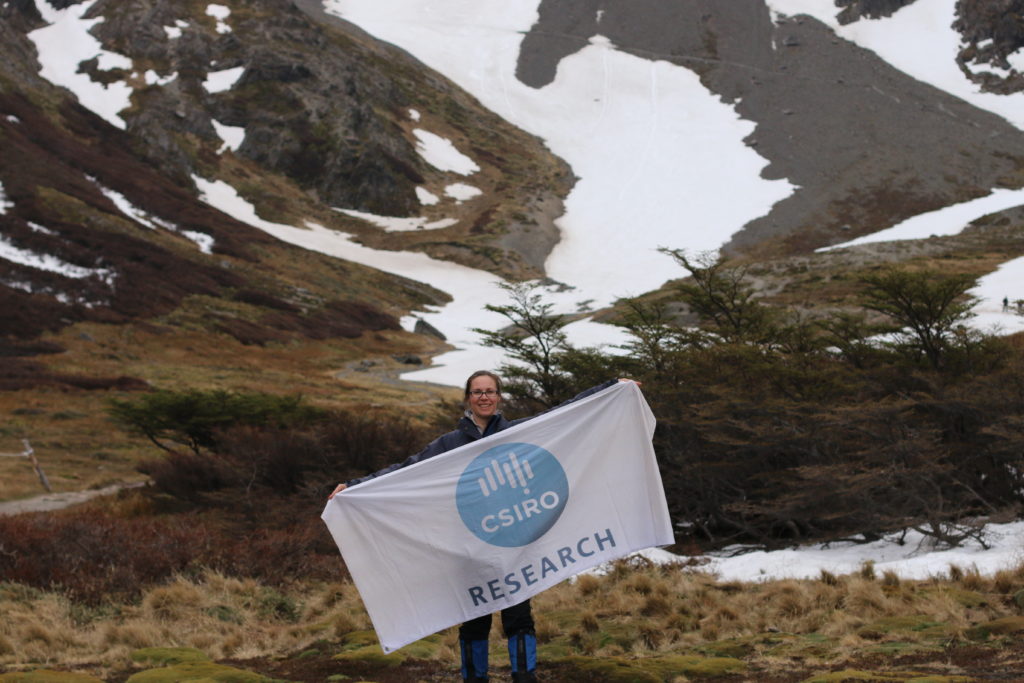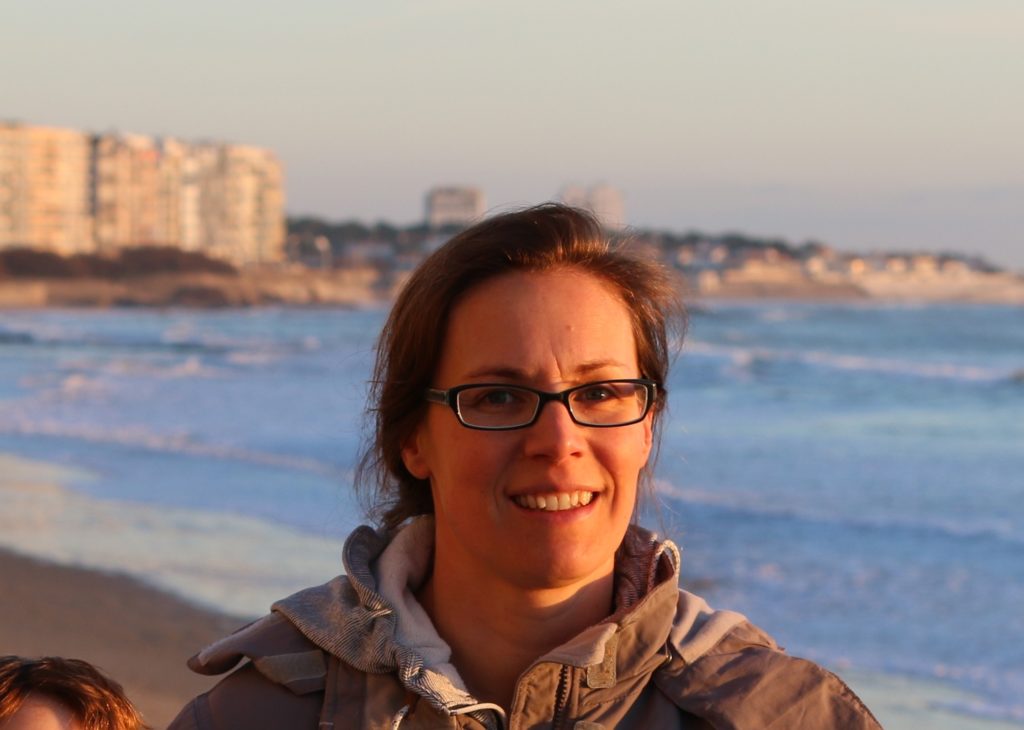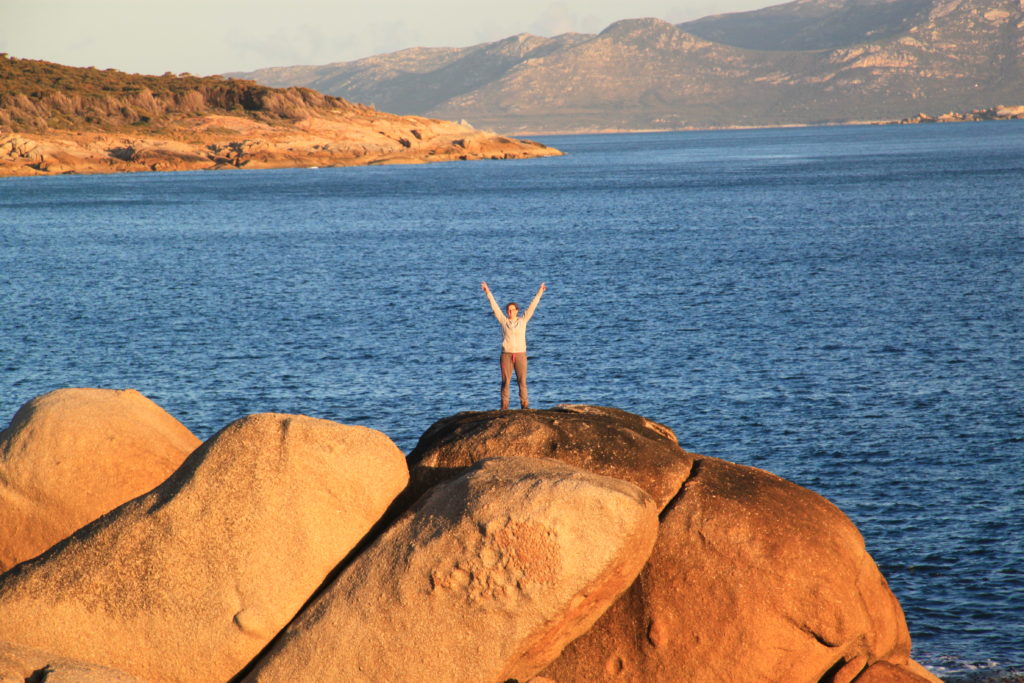
Flying the CSIRO flag: Clothilde Langlais is proud to be part of the Homeward Bound cohort for 2019.
Our oceans are a support system for us all. They influence our climate, provide food for billions of people, and are a meaningful part of Aussie culture.
But we don’t have to tell that to Clothilde Langlais, one of our leading physical oceanographers. Her passion is how our oceans connect with our climate system, and she’s been delivering some impressive science in this space for the last 15 years.
Clothilde is currently in one of the most remote parts of the world – Antarctica – to champion women in STEM and build on her climate change knowledge.
Connecting climate, oceans and people
Clothilde would be a great asset on any trivia team for questions related to our oceans.
“Did you know our oceans absorb more than 90 per cent of the excess heat trapped on Earth caused by human-made greenhouse gases? And that our oceans absorb almost 40 per cent of the human-made carbon from the atmosphere? This can impact ocean circulation and our climate,” Clothilde explained.
She looked at how carbon and heat are soaked up from the atmosphere and stored deep in the Southern Ocean. Now she’s researching the impacts of that on one of Australia’s most valued marine assets – the Great Barrier Reef. She’s also exploring ways to reduce the effects and help the reef adapt to a changing climate.
“As an oceanographer, I am focused on the pressing challenges facing our coasts. These include warming, sea-level rise, change in circulation, the shifting of habitats, coral bleaching, and ocean acidification. I’ve also researched how climate projections could create change in our marine environment including eddies (circular currents), the Southern Ocean and El Nino.”
Clothilde really is a walking encyclopedia on ocean science.

Ocean science and women in STEM champion: Clothilde Langlais from CSIRO Oceans and Atmosphere
Women in STEM cheerleader
Building on her scientific career, Clothilde wants to bring her science and knowledge to the wider community. And she is, by taking part in the Homeward Bound leadership program for women in STEM.
Clothilde will be joining close to 100 women for a voyage to Antarctica (including six of our own scientists). They’ll develop professional and personal skills and build an international network with female leaders in science.
“Through my science, I want to make a difference. I want to change the world,” she tells us.
“I am proud to participate in the growing knowledge around climate change. And I want to bring this knowledge far and wide. I want to bring my science to life through visualisation and storytelling, while increasing the presence of women in STEM. Homeward Bound will help me do that, by helping me raising my voice and vision for a brighter future.”

On top of the world to travel to the end of the world: Clothilde Langlais will be joining a three-week voyage to Antarctica.
Behold Mother Nature
Through Clothilde’s career, she has seen differences in the progress of male and female scientists.
“There has been variation in the level of opportunities, support and trust in ideas. And being caring was not considered a popular leadership attribute. But things are changing. I am gaining confidence, connecting with other female leaders and creating a strategic path for my science.”
Clothilde is pleased to be meeting Mother Nature in its wildest and most majestic form. But she recognises that Antarctica is also vulnerable.
“Science gives us an understanding of why things are the way they are and how our planet works. It also helps us to plan for the future.”
“I’m excited that my science and participation in Homeward Bound will influence female scientists all around the world to help shape decisions for our planet.”


11th December 2020 at 11:16 am
i recommend you also interview Dr. Meganne Christian a young Australian woman currently working in Antartica at Concordia station who specialises in graphene and climate research for Europe.